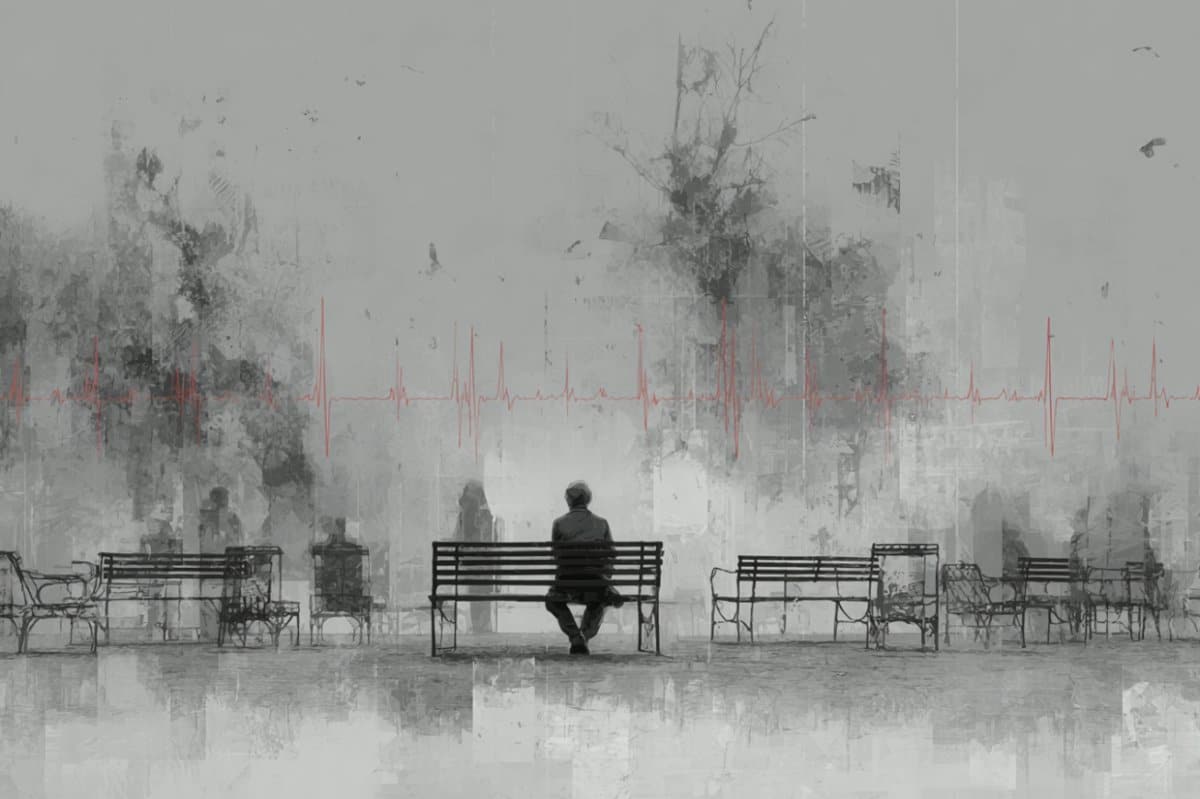T4K3.news
Study shows grief can increase death risk
New research confirms that intense grief can double mortality risk in bereaved individuals.

Research highlights the potential mortality risk associated with intense grief following bereavement.
Study reveals the dangers of dying from a broken heart
A recent study from Denmark shows that intense grief can significantly increase the risk of death. Researchers followed 1,735 individuals for ten years after they lost a loved one. Those experiencing high levels of grief had an 88 percent higher likelihood of dying compared to those with lower grief symptoms. This research suggests that finding the right support, such as grief therapy, may help mitigate these risks. The study also found a correlation between intense grief and pre-existing mental health issues, indicating that doctors could help identify those at greater risk during bereavement periods.
Key Takeaways
"We have previously found a connection between high grief symptom levels and higher rates of cardiovascular disease, mental health problems and even suicide."
Dr. Mette Kjærgaard Nielsen highlights the broader health implications of high grief levels.
"A GP could look for previous signs of depression and other severe mental health conditions."
Nielsen points to the role of primary care providers in assessing grief risk.
This study shines a light on an often overlooked aspect of grief: its potential to affect physical health profoundly. The connections between high grief intensity and mortality underscore the necessity for greater awareness among healthcare providers. By recognizing the signs of profound grief and addressing them head-on with appropriate interventions, doctors can play a critical role in protecting individuals from severe long-term consequences. Moreover, the findings suggest an urgent need for mental health resources to support those in mourning.
Highlights
- Intense grief can have real consequences for health.
- Doctors must recognize the impact of grief on mortality.
- Grief therapy can be a lifeline for those in need.
- Understanding grief may save lives in the long run.
Prolonged grief poses health risks
The study indicates that individuals who experience severe grief may face a doubled mortality risk, highlighting a public health concern.
As we understand the impact of grief better, health systems may evolve to provide more targeted support for those in need.
Enjoyed this? Let your friends know!
Related News

Study Links Grief to Higher Mortality Rates

New study shows grief can lead to increased mortality

Danish study links grief to higher risk of early death

Intense grief raises risk of death within ten years

Study reveals grief can lead to early death

New studies explore sunlight benefits for health
Study suggests 7,000 steps may enhance health

Researchers find brisk walking drastically improves heart health
